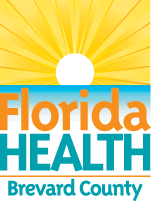It's a New Day in Public Health.
The Florida Department of Health works to protect, promote, and improve the health of all people in Florida through integrated state, county, and community efforts.
Health Officials Urge Residents to Take Precautionary Measures to Avoid Measles
April 21, 2015
FOR IMMEDIATE RELEASE
April 21, 2015
Contact: Heidar Heshmati, MD, Director
Office (321) 454-7111; Cell (321) 426-5600
HEALTH OFFICIALS URGE RESIDENTS TO TAKE PRECAUTIONARY MEASURES TO AVOID MEASLES
BREVARD—The Florida Department of Health has confirmed three cases of measles in neighboring counties; measles is a very serious respiratory disease caused by a virus. The disease is highly contagious and can spread to others who are unvaccinated.
"Measles is a very serious disease," said Heidar Heshmati, MD, Florida Department of Health in Brevard County Director. "It is important for everyone to contact their doctor and make sure they have received the measles vaccination to protect themselves and others."
The department encourages all Floridians who have not been immunized to get vaccinated immediately. Vaccinations are available through the Florida Department of Health in Brevard County or doctor's office for little or no cost.
Measles is spread through the air by breathing, coughing or sneezing and is highly contagious. When that person sneezes or coughs, droplets spray into the air. It can be transmitted from four days before the rash becomes visible to four days after the rash appears. A typical case of measles begins with mild to moderate fever, cough, runny nose, red eyes and sore throat. The symptoms of measles generally begin approximately seven to 14 days after a person is exposed to someone with measles, and include the following:
- Blotchy rash
- Fever
- Cough
- Runny nose
- Red, watery eyes (conjunctivitis)
- Feeling run down, achy (malaise)
- Tiny white spots with bluish-white centers found inside the mouth (Koplik's spots)
People who develop these symptoms should contact their health care provider right away.
Measles is very rare in countries and regions of the world that are able to keep vaccination coverage high. There are still sporadic cases of measles in the United States because visitors from other countries or U.S. citizens traveling abroad can become infected before or during travel and spread the infection to unvaccinated or unprotected persons.
Persons generally can be considered immune to measles if they:
- Were born before 1957
- Have documentation of physician diagnosed measles
- Have serologic evidence of immunity to measles
- Have documentation of adequate vaccination (Criteria for adequate vaccination depends on a person's age)
Children should be immunized against measles with the combination measles, mumps and rubella vaccine (MMR) vaccine. Children should receive two doses, with the first at 12 to 15 months of age, and the second at four to six years of age. Adolescents and adults may require two doses of MMR, people with underlying health conditions should discuss additional booster doses with their health care provider to determine need. The department encourages all Floridians who have not been immunized to get vaccinated immediately.
For more information, visit https://www.floridahealth.gov/diseases-and-conditions/vaccine-preventable-disease/measles/index.html.
The Centers for Disease Control and Prevention measles webpage is available at https://www.cdc.gov/measles/.
###
The Florida Department of Health protects, promotes and improves the health of all people in Florida through integrated state, county and community efforts.
Follow us on Twitter at @HealthyFla and on Facebook. For more information about the Florida Department of Health, please visit www.floridahealth.gov.





Connect with DOH